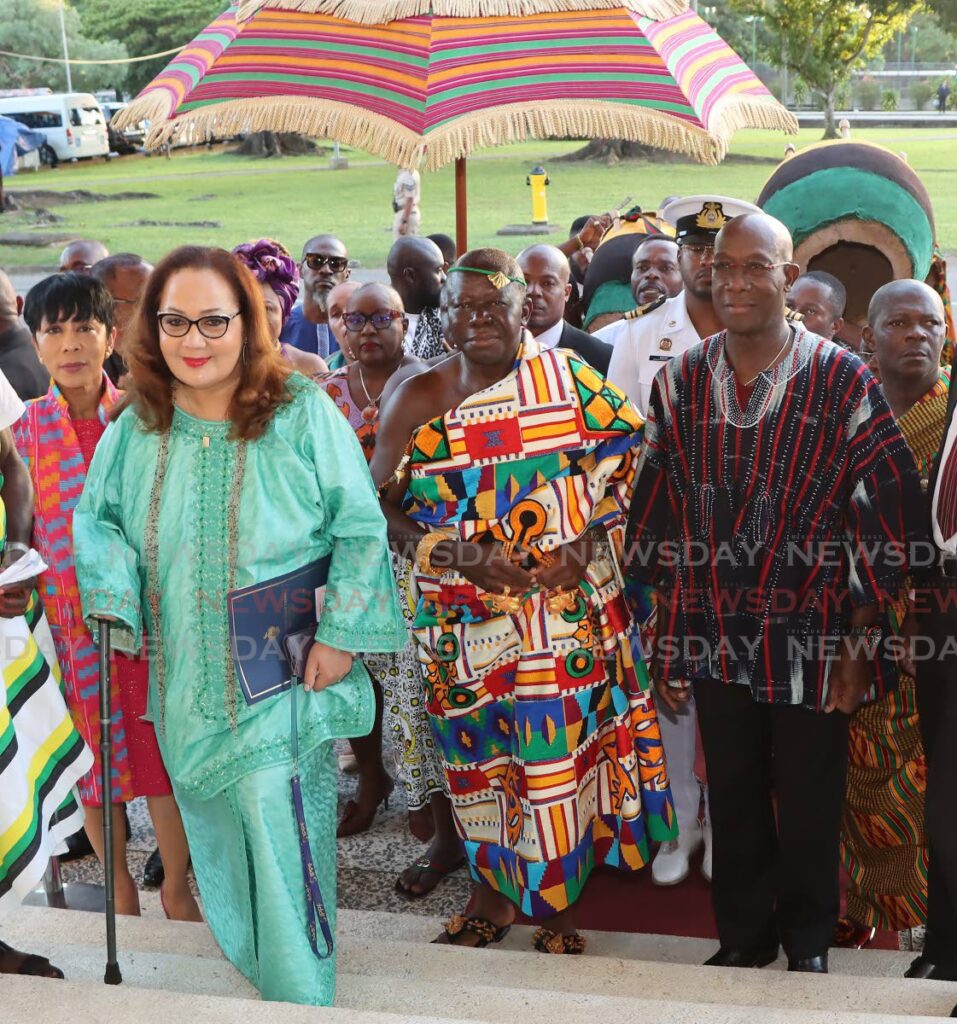Advice from Africa

The comment by His Majesty Otumfuo Osei Tutu II was clear and unequivocal. "Freedom to wallow in poverty cannot be true emancipation," he said on Tuesday.
The Asantehene's caution is both perceptive and embarrassing. Clearly he has kept eyes open during his visit and has noted the wide variation in living standards that we have come to take for granted.
A guest of the Emancipation Support Committee for this year's Emancipation Day celebrations, the colourful and deeply traditional presence of the Asantehene and his entourage offered a welcome insight into the traditions and culture of the native empires of Africa, few of which have survived so robustly into the modern era.
The Asante Empire is the heartland kingdom in the independent nation of Ghana. The Asantehene is officially a ceremonial king in an independent democratic nation state, but reigns as absolute monarch in the forested region that serves as the seat of the Asante Empire which he governs with great power and influence.
When a 2002 chieftaincy crisis arose in the northern Kingdom of Dagbon just three short years after his ascendancy to the throne, the Asantehene was lauded with facilitating negotiations and mediating talks that led to the restoration of a lasting peace.
Ghana has experienced a troubled evolution as a nation, coming into its own as a cohesive and independent state over the last 18 years.
For more than two decades, the Asante Empire has, under the Asantehene's leadership, offered a shining example of governance and management within Ghana.
Under his guidance, wayward members of his court have been removed from office for misdeeds and he has demonstrated a notable commitment to continuing environmental conservation and to replanting of the empire's substantial rainforest reserve.
When the Asantehene speaks of uplifting the young through opportunity and education, he does so from his experience in administering the resources of a royal charity foundation that actively engages with underprivileged children, offering tangible support for education, including initiatives that were ramped up during the pandemic.
His concerns about drugs and violence and the price of sloth and indiscipline are well placed. His suggestion that young Afro-Trinidadians should have more options to educate themselves about the African cultural history from which their ancestors were forcibly divorced – which he reiterated in a lecture at the University of the West Indies on Thursday – inspired the Prime Minister to consider university collaborations and cultural exchanges with Ghana.
The Asantehene has opened an important door that reconnects TT with Ghana by declaring that the destinies of this country and his homeland are now linked.
Those links were hallmarked by tragedy and can now become a new passage, through which the history, culture and the heritage of the colonies can be reassessed through the perspective of the Ghanian experience.


Comments
"Advice from Africa"